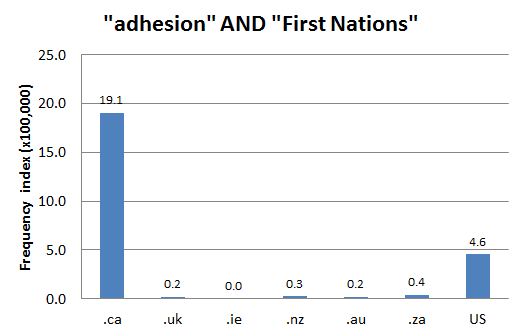DCHP-2
adhesion DCHP-2 (September 2016)
1 n. — Aboriginal, especially First Nations
an agreement between an Aboriginal group and the federal government to join an existing treaty agreed to by another Aboriginal group or groups.
Type: 3. Semantic Change — In the Canadian context, the term has specialized from the more general sense 'formal declaration of intent to abide by the terms of a treaty, join a political or economic union' (see the OED-3, s.v. "adhesion" (1c)) to refer to treaties with Aboriginal bands. The term is most frequently used in Canada (see Chart 1).
See also COD-2, s.v. "adhesion" (6), which was the first dictionary to mark this meaning "Cdn".See also: treaty (meaning 1a)
- Treaties are only signed with the Crown (the federal government), yet provincial governments often play a role in the negotiations.
2 in compounds, e.g. adhesion agreement — Aboriginal, especially First Nations
See meaning 1.
Type: 3. Semantic Change — See meaning 1.
